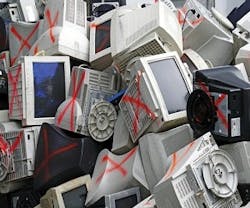Solar Panel Problems
Solar panels and photovoltaics are one of the hottest trending solutions in the field of renewable energy, but these sustainable sources come with their own potential problems. While there is little doubt that solar panels provide a clean energy option, their creation and disposal can be associated with environmental damage and waste.
Since these problems have been known for as long as solar panels have been an item in the renewable energy world, steps have been made to reduce these issues as solar power becomes a greater part of the U.S. energy portfolio.
Solar panel manufacturing has been associated with huge fossil fuel costs and the often hushed silicon tetrachloride. Silicon tetrachloride is a highly toxic compound with profound environmental impacts; the substance causes the earth near dumping locations to become infertile wastelands.
While the resulting clean energy source that solar panels provide is largely visible to the public, the wide variety of toxins involved in the manufacturing are often dismissed completely.
The lifetime of solar panels is on the rise, but responsible and effective recycling solutions are something that should be on the radar for anyone involved in photovoltaic options.
Solar panel problems can be likened to many of the same issues facing electronics. Short lifespans and dangerous dumping mark these technologies that are otherwise viewed as bold innovations.
